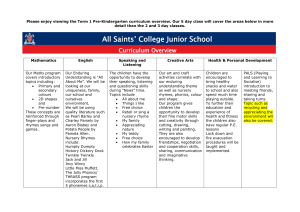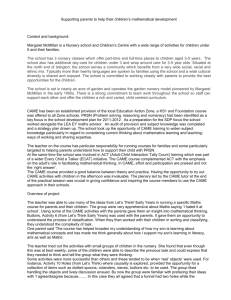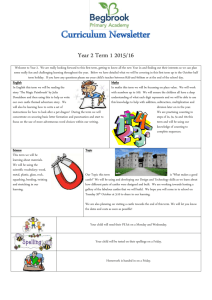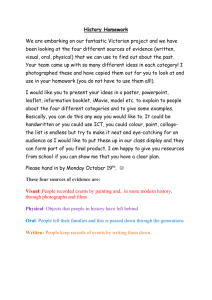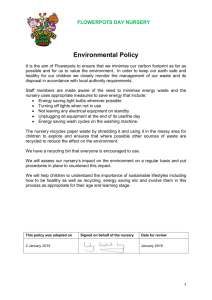Definition of homework - Castle Bromwich Infant & Nursery School
advertisement
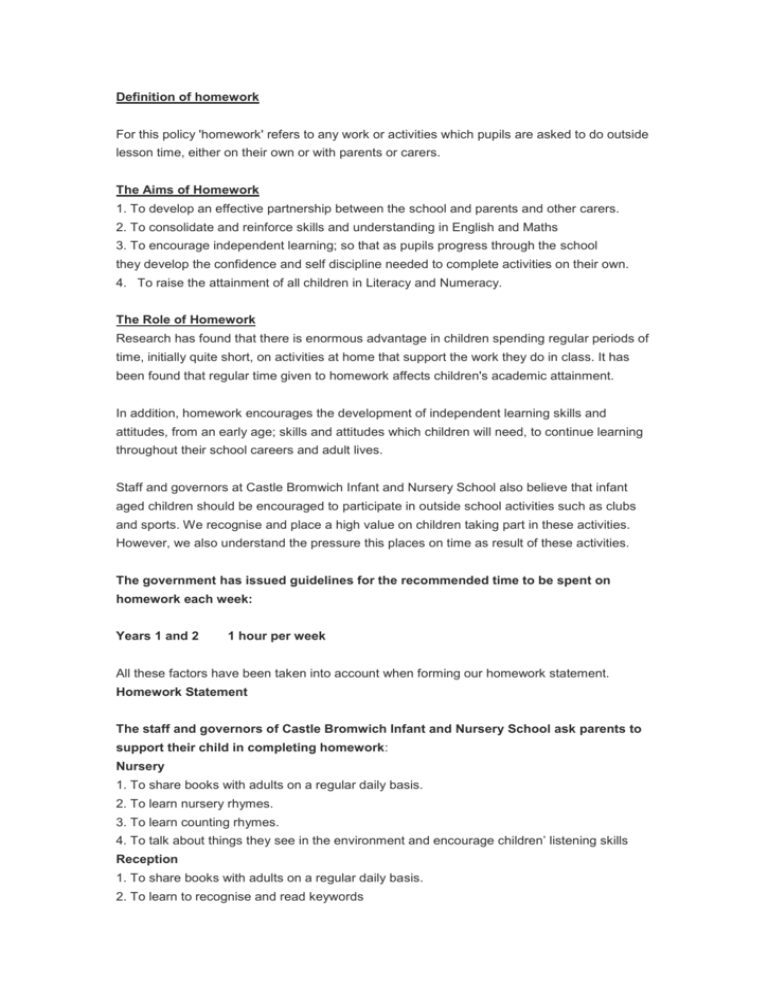
Definition of homework For this policy 'homework' refers to any work or activities which pupils are asked to do outside lesson time, either on their own or with parents or carers. The Aims of Homework 1. To develop an effective partnership between the school and parents and other carers. 2. To consolidate and reinforce skills and understanding in English and Maths 3. To encourage independent learning; so that as pupils progress through the school they develop the confidence and self discipline needed to complete activities on their own. 4. To raise the attainment of all children in Literacy and Numeracy. The Role of Homework Research has found that there is enormous advantage in children spending regular periods of time, initially quite short, on activities at home that support the work they do in class. It has been found that regular time given to homework affects children's academic attainment. In addition, homework encourages the development of independent learning skills and attitudes, from an early age; skills and attitudes which children will need, to continue learning throughout their school careers and adult lives. Staff and governors at Castle Bromwich Infant and Nursery School also believe that infant aged children should be encouraged to participate in outside school activities such as clubs and sports. We recognise and place a high value on children taking part in these activities. However, we also understand the pressure this places on time as result of these activities. The government has issued guidelines for the recommended time to be spent on homework each week: Years 1 and 2 1 hour per week All these factors have been taken into account when forming our homework statement. Homework Statement The staff and governors of Castle Bromwich Infant and Nursery School ask parents to support their child in completing homework: Nursery 1. To share books with adults on a regular daily basis. 2. To learn nursery rhymes. 3. To learn counting rhymes. 4. To talk about things they see in the environment and encourage children’ listening skills Reception 1. To share books with adults on a regular daily basis. 2. To learn to recognise and read keywords 3. To learn counting rhymes. 4. To play maths games 5. To reinforce sounds learnt in school. Year 1 1. To read and listen to others read on a regular daily basis for 10 minutes per day. 2. Simple counting and learn number bonds 3. To play maths games 4. To reinforce sounds learnt in school. 5. To learn to read keywords Year 2 1. To read and listen to others read on a regular daily basis for 15 minutes per day. 2. To have a rapid recall of number bonds to 20 and to begin to learn times tables. 3. To complete maths tasks set on the computer (matheletics) 4. To learn spelling rules taught in class and read/spell keywords 5. To research and understand vocabulary related to topics. The emphasis is on a regular pattern to homework so that children get accustomed to completing tasks and the demands of homework are balanced and manageable. Policy Statement This policy reflects the important role of homework in Castle Bromwich Infant & Nursery School. It outlines a broad framework for the setting of homework throughout the school. This framework begins in nursery and emphasises the importance of developing a partnership with parents or carers and involving them actively in their child’s learning from the earliest times. For children in both the Foundation Key Stage and Key Stage 1 there is an emphasis on reading and sharing books with an adult. In addition children have personal targets which are shared with parents on ‘parents evenings’. In the nursery class these may focus on PSD (Personal & Social Development) targets e.g. dressing and undressing independently. After this targets focus on children learning the high frequency words for reading and then spelling. Children may also have a maths target eg learning to count in 1s. The reading diary enables communication between home and school and class teachers ask that parents sign the reading diary when they read with their child or if they have any homework queries. Children with special educational needs are expected to follow the guidelines for homework. However, their Individual Education Plan (IEP) may set out specific tasks for them to practise with parents. The efficiency and effectiveness of the homework policy is regularly monitored and evaluated. In the first instance the class teacher monitors the time and effort given to homework. The Head teacher monitors homework throughout the school and discusses with class teachers how far the school homework policy has been successfully implemented



